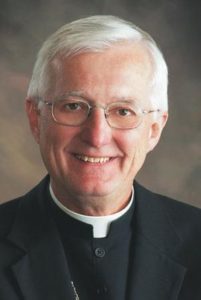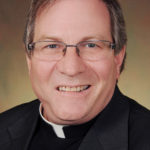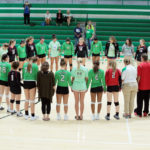Bishop Martin Amos
Life Issues
(This article is one of a series from the bishops of Iowa on “end of life” issues.)
In the Book of Genesis, we read that the first couple was commissioned to care for the garden that God had planted. They were to serve as caretakers, not rulers; tenant farmers instead of owners. Their vocation as stewards was to till the earth on God’s behalf. It was only when we tried to become like God — by eating the fruit or, later, by building the Tower of Babel — that disaster followed.

We did not learn our lesson. The prophets had to remind the kings of Israel repeatedly that they were only stewards, that Israel had only one true king — God — and that those who sat on the throne did so as caretakers. The kings were to tend the garden of Israel on God’s behalf, as stewards and shepherds not absolute rulers.
The Wisdom writings of the Old Testament also remind us that all we have comes from God; we are not owners, but caretakers; stewards not masters. Psalm 8:5-6 proclaims:
What is man that you are mindful of him,
and a son of man that you care for him?
Yet you have made him little less than a god,
crowned him with glory and honor.
We are so much more than just animals; but we are not gods. There are limits on what we can (and should) do. I will be the first to admit: such a message is hard to hear in a culture that says that if we can do it, we should; that there are no bounds on how we might manipulate nature. There are those who advocate for increasing control of human reproduction, even to the point of changing our genetic code. And there are those who argue that it is a “right” to decide when and how we are to die.
We hold that creation, that life, is not an accident, but that it has a source; that it is not meaningless, but that it has a purpose, an end. We are part of a web of intimate and intricate relationships, and we have a unique place and role as creation’s stewards. But we are still part of creation; we are creatures and not the creator. We are again forgetting the lessons of the garden and of Babel.
The creator has entrusted us with the care and use of the natural world, including our bodies. It is no wonder that the church holds life not just in respect but in awe. Life is a precious gift, never to be squandered. So our tradition insists that taking care of ourselves is a moral responsibility, a response in gratitude to the gift we have been given. This is good stewardship.
At the same time, we insist that the various qualities that make up our lives do not add to or detract from its inherent value. Human life has an ultimate meaning beyond this existence. We are created for relationship with God; a relationship that begins in the here and now and that reaches its ultimate fruition at the end of time. Jesus died and rose so we might enjoy eternal life. Physical death, therefore, is not the ultimate enemy. With St. Francis of Assisi, we can learn to welcome death as our sister who leads us to the Father.
We are called to neither fear death nor hasten its coming. There may come a time in each of our lives when physical healing is no longer possible. Once we are dying, our focus ought not to be on pursuing the impossible but on preparing to let go of this life and trustingly abandon ourselves into the hands of God. Comprehensive end-of-life care, which focuses on the physical, emotional, relational and spiritual needs of the one who is dying and of those close to them, is where our time and energy need to be spent. This, too, is good stewardship.
As stewards, we have the privilege of caring for the gift of life, even in the midst of dying. We are called to tend the garden of our lives with gratitude, humility, and trust in the One who made us, redeemed us, graces us along the way, and calls us to everlasting life.
(Bishop Amos is bishop of the Diocese of Davenport.)










